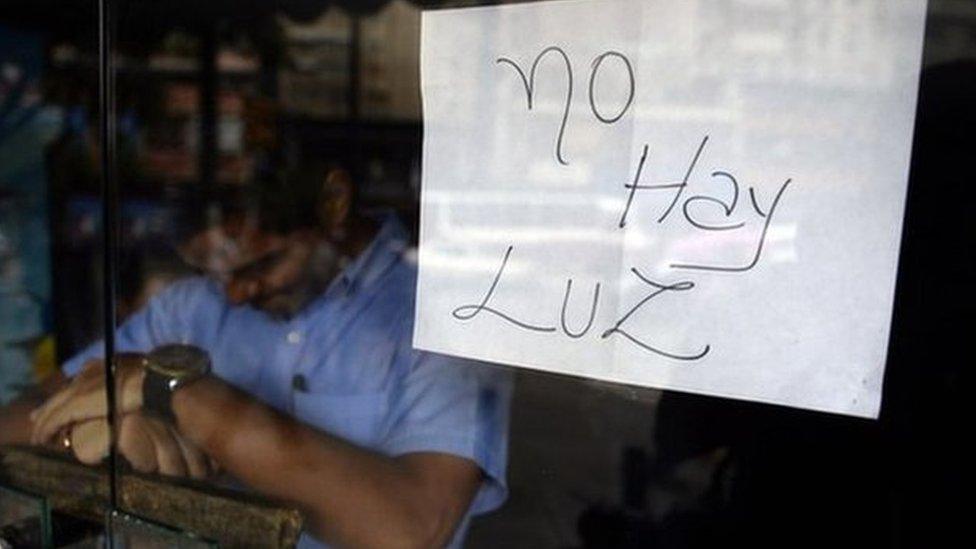Venezuelans lose sleep to save electricity
- Published
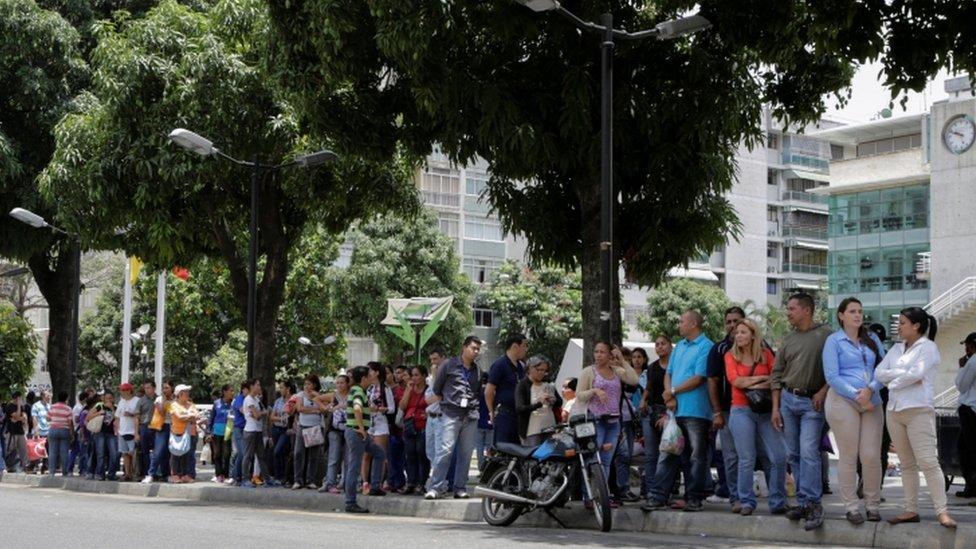
Venezuelans face acute shortages of such basics as toilet paper and have to spend hours queuing.
Venezuelans lost half an hour of sleep on Sunday when their clocks moved forward to save power, as the country grapples with a deep economic crisis.
The time change was ordered by President Nicolas Maduro as part of a package of measures to cope with a severe electricity shortage.
The government already ordered rolling blackouts and reduced the working week for public sector workers to two days.
Mr Maduro has blamed the energy crisis on a severe drought.
He says the drought has drained the country's hydroelectric dams and its capacity to generate power. His critics say the crisis is due to mismanagement of the energy sector.
The government has also ordered schools to close on Fridays and shopping malls to open only half time and generate their own energy.
When he announced the time change, Science and Technology Minister Jorge Arreaza said the night-time use of lighting and air conditioning was especially draining for the national power grid.
"It will be simple to move the clock forward a half hour - this will allow us to enjoy more daylight, and it wont get dark so early," he said.
Oil-rich Venezuela is in the middle of a deep economic crisis caused by a drop in global oil prices. The country is suffering from a shortage of basic goods and food.
Mr Maduro has said the situation has been caused by an "economic war" against his socialist government driven by the country's business elite and the United States.
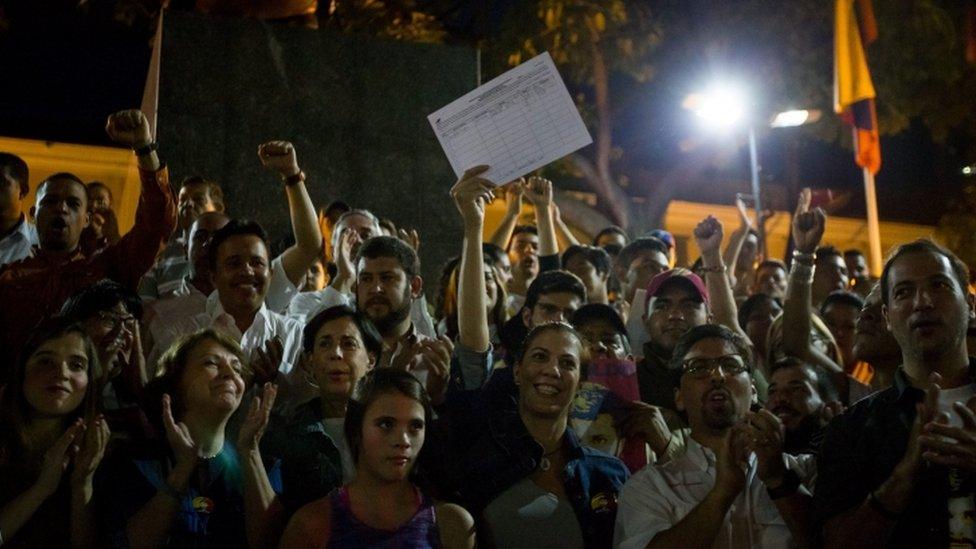
Supporters of one of Venezuela's jailed opposition leaders, Leopoldo Lopez, celebrated after he signed a document requesting the recall referendum
The opposition in Congress which took over the legislature in December has accused Mr Maduro and his government of economic mismanagement and incompetence.
They have sworn to drive him from office and have begun gathering the signatures needed to begin organising a referendum to remove him from the presidency.
On Saturday they said they had gathered nearly two million signatures - 10 times the amount required by the country's electoral board.
If the board verifies the signatures, the government's opponents will then have to collect four million more - to total 20% of voters - for the board to organise a referendum vote.
For the referendum to be successful, an equal or greater number of voters than those who elected Mr Maduro would have to cast their vote in favour of the recall.
Mr Maduro won the 2013 election with 7,587,579 votes.
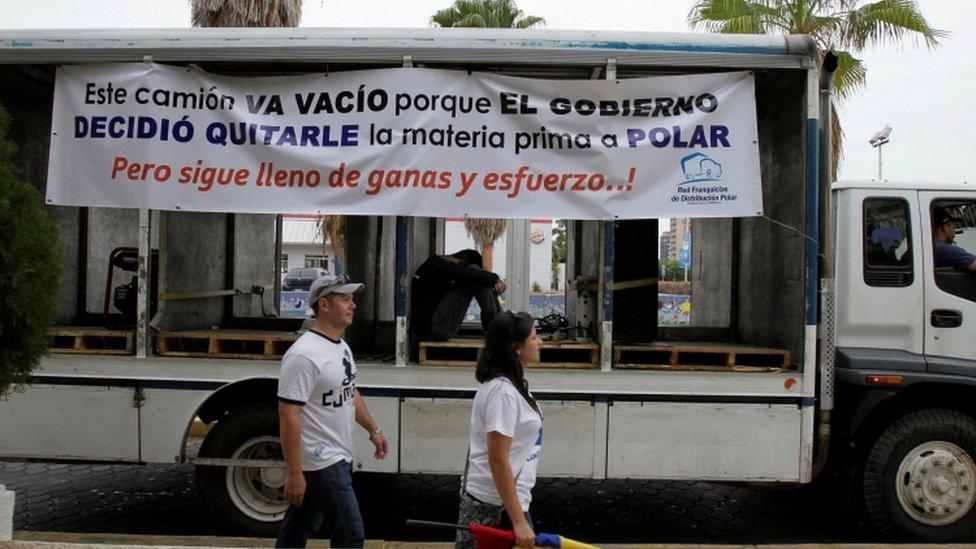
At protest organised by Polar workers, the placard reads: "This truck is empty because the government decided to take Polar's raw material. But it is still full of energy and effort!"
Meanwhile, Venezuela's economic crisis has claimed another victim as the country's largest brewer, Polar, suspended its operations.
Polar, the largest private company in the country, brews about 70% of the country's beer and Venezuela is one of the highest consumers of the beverage in Latin America.
Polar has argued that the government has not released enough dollars to allow it to import malted barley, which Venezuela does not produce.
The government has accused Polar of exaggerating its dollar requirements and of hoarding.
The stoppage, which Polar says is temporary, will affect about 10,000 employees.
- Published28 April 2016
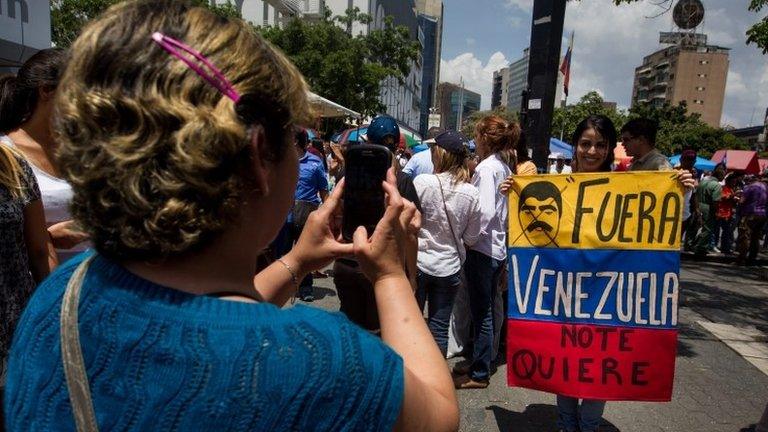
- Published7 December 2015
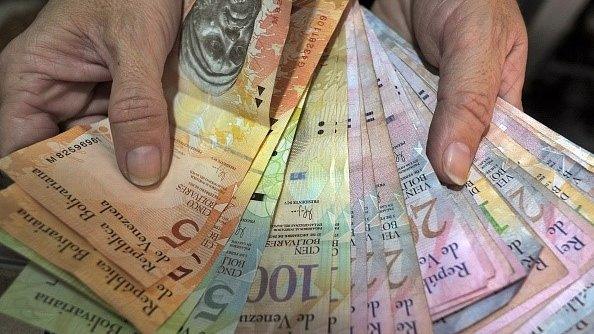
- Published8 February 2016
